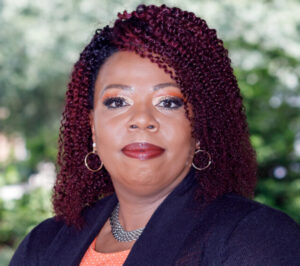
What They Don’t Tell You About Being a Professor in the Social Media Age
I remember dial-up modems and the exhilaration of logging onto AOL.com as a teenager. A few years later, I experienced the novelty of Facebook. Duke Divinity School (DDS) advised all of its masters’ students in the 2008 incoming cohort to create Facebook accounts so we could stay connected and support one another through the first year of our graduate program. DDS recognized that this would be a time where students begin to deconstruct presupposed understandings of religion, Bible, and the theologies that we had received from our families of origin and church contexts. Reflecting back on that time, I feel as if the beginning of my deconstruction was wed to the rising age of social media. Now as a professor of the New Testament in the age of social media, what should some of my best practices entail?
While difficult to define, the term “social media” identifies the various internet applications that allow users to construct their profiles while also creating content that connects and networks various groups of people. While social media is supposed to be about “connection,” I imagine that we all have experienced “internet trolls,” folks who try to bait and upset readers with disturbing comments. As professors of religion and theology, I would argue that we are the prime targets for internet trolls just by virtue of the nature of our work at a time where there seems to be rising White Christian nationalism in the United States.
So, I often ask myself questions about the role of the professor in the age of social media. For example, in my context, our Director of Outreach and Alumni Relations requests that faculty increase their social media presence as a way to connect with alumni who are out working in the world. Can I carefully curate my social media presence to let those alumni know that I support them from afar? As a professor, what content can I create that allows alumni to be refreshed as they do the difficult work of leading congregations and parachurch ministries? Moreover, can social media serve as a way for faculty to connect with prospective students as we all experience the feelings of scarcity in theological education? Is this another area of “service” that faculty can add to their tenure portfolios (assuming one has a job with tenure!)?
While I am not sure of the proper answers to the above questions, I certainly try to be cognizant of what the next generations of theological students may look like. Gen Z, for example, born between 1997 to 2012, is the first generation to have grown up with ALL THE TECHNOLOGY. Further, they will buy products from social media sites more than any other generation. Is there a way for Millennial, Gen X, and Boomer faculty to capitalize on connecting with Gen Z through social media? I think that is a conversation that must be had in our various theological faculties.
I started @BoozyBibleScholar on TikTok and Instagram, providing segments called “One Minute Womanism” and “Scripture Through Womanist Eyes” as a way to show my growing community that there are other voices besides the conservative right-leaning interpreters of scripture. Now, I will definitely not be keeping up with the latest TikTok dance trends, but I will add my own particular voice to the ever-growing vacuum of social media to provide a brave space for the folks who may be feeling left behind and kicked out of Christianity. Just as in the opening of this reflection I recognized my own deconstruction during the rise of the social media age, I imagine that Gen Z experiences similar deconstruction(s). As I peruse social media, it seems to me that the loudest voices in Christianity today tend to be destructive voices. If you have pondered a desire to help silence those destructive voices, I implore you to act now. Find ways to make your scholarship available to the public. I wholeheartedly believe that one of the professor’s jobs in the age of social media is to be a transformative voice in contrast to those who will try to tear people down. Instead of letting John Piper, John MacArthur, or Voddie Bauchaum be the loudest voices in public religious discourse, professors of religion and theology owe the American public counter voices in the age of social media. My hope is that my social media presence will at least point some to believe that there are other ways to be “Christian” in a world that has vastly devalued such an identity.
TikTok: @BoozyBibleScholar and Instagram: @BoozyBibleScholar
Leave a Reply